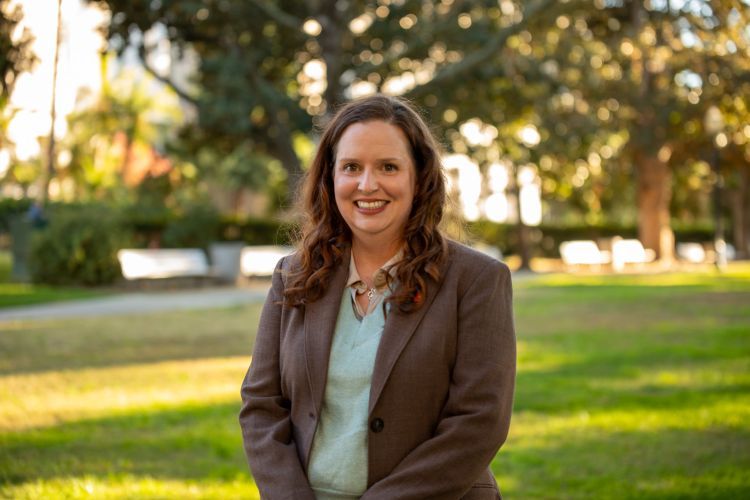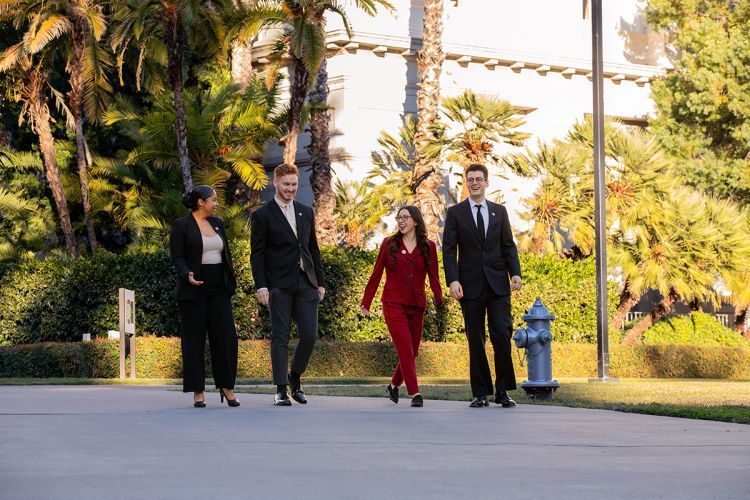Breadcrumb
Craft beer law scholar examines Commercial Speech, the First Amendment, and a circuit split in law review article

Professor Dan Croxall is the nation’s leading scholar on craft beer law.
Professor Dan Croxall recently published an article with the Florida State University Law Review examining Commercial Speech, the First Amendment, and a circuit split that has a direct impact on craft breweries.
Croxall, ‘08, created and teaches the world’s first craft beer class at his alma mater, McGeorge School of Law. Prior to teaching full-time at McGeorge, he practiced complex civil litigation and white-collar criminal defense and then opened his own firm and focused his practice on California craft breweries. He is the nation’s leading scholar on laws and regulations impacting the craft beer industry and has been called to present on craft beer law at various conferences and law schools.
Croxall’s inspiration to write, “Arming Goliath: Independent Craft Beer Is in Jeopardy at the Intersection of a First Amendment Circuit Split, the Twenty-First Amendment, and the Erosion of Tied House Laws,” stems from varying state laws called tied-house laws, which are designed in part to even the playing field between small craft breweries and large-scale manufacturers.
Tied-house laws are federal and state laws that attempt to prohibit brewers, distillers, winegrowers, and other alcohol beverage manufacturers and suppliers from exerting influence over retailers, such as bars and restaurants. As an example, tied-house laws prevent large-scale manufacturers or wholesalers from approaching a bar and offering to pay the bar to advertise their products in the bar. Otherwise, the largest manufacturers and retailers would have an advantage in connecting with consumers and an expectation of a return favor in terms of sales. Such conduct is described as “pay-to-play” and is fundamentally illegal under alcoholic beverage laws.
The United States Court of Appeals for the Ninth Circuit has upheld these restrictions, and the United States Court of Appeals for the Eighth Circuit recently rejected these restrictions under a Constitutional First Amendment analysis, resulting in a circuit split.
Croxall is concerned that, if the circuit split is appealed to the Supreme Court, the Court adopt the Eighth Circuit’s analysis.
“I think they would be less likely to allow states to regulate how they are now, which does implicate the First Amendment in terms of Commercial Speech,” Croxall said. “It’s more likely to find that the First Amendment protects even Commercial Speech to a heighted degree as the Eighth Circuit found in the case that I focus on in this paper.”
If large manufacturers and wholesalers are allowed to pay to advertise in bars and restaurants, smaller breweries and companies will be no longer able to compete.
“The Constitutional Amendment [the Twenty-first Amendment] leaves it to the states, and I think it will continue to be regulated by the states unless there is a constitutional violation, which could cause federal courts to nationally regulate commercial speech in the alcohol beverage space,” Croxall said.
Croxall’s article explains the Eighth Circuit’s approach.
“The Eighth Circuit applies a higher level of scrutiny. The state needs to show that those harms are not only real – but that the regulations will in fact alleviate them to a material degree,” Croxall said.
His article also suggests how states might be able to satisfy the Eighth Circuit’s test for such regulations. Croxall reports that the State of Iowa, in an effort to be preemptively prepared to address challenges to Iowa’s alcohol laws, commissioned a study to justify its alcohol laws. Croxall encourages other states to engage in that type of study.
Croxall is nearly finished with what will be the first craft beer law textbook (Carolina Academic Press) in the country, which he wrote for use in law schools and for craft breweries. In April of 2021, Professor Croxall organized and hosted the world’s first law review symposium focused on craft beer law, which included scholars and practitioners from around the country. Croxall also has a craft beer law blog and is active on Twitter at @GoodBeerLawProf.
____________________________________________________________________________________
For more information about McGeorge School of Law, visit our website.
Media Contacts: Ashley Golledge, Director of Marketing and Communications, agolledge@pacific.edu, 916.325.4687; and Victoria Ambriz, Marketing Coordinator, vambriz@pacific.edu, 916.325.4631.





